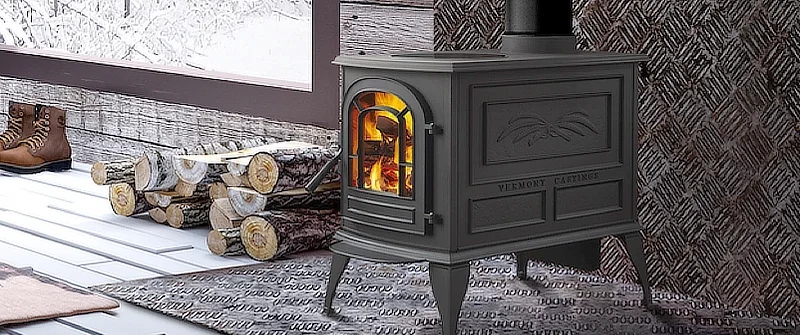Non-Electric Systems For Surviving Off-Grid At Home

Non-electrical systems for living or surviving off-grid. That sounds a bit uncomfortable, given today’s modern lifestyle hinged with all things electric! Why bother with such thoughts of mitigation for these systems? Well, there are sensible reasons that may be considered worthwhile.
Non-electric mitigation for the electric home. Not only a safety valve for modern-day dependence upon complicated systems requiring electricity, non-electric system mitigation will bring on a feeling of self-reliance, sustainability, and peace-of-mind.
Some consider these things for the sake of prepping and preparedness. Let’s face it. Today’s world is far different from decades ago. Not only are we completely reliant on electricity and everything that it powers, but there are genuine risks thereof. Systemic risks.
Losing vast portions of the electric power grid is not that far-fetched. Likewise, the ‘down time’ could potentially be long enough to cause extreme hardship and mayhem. We are living in a world of uncertainty whereby cyberattacks or electromagnetic pulse weaponry could bring it down. It is not science fiction. Rather, it is all very real, and exists today, right now.
I’m not here to convince you. If you’re not, you’re not. If you are, you are. Maybe you’re on the fence and need to do some research. Whatever the case may be, “if” such a thing were to happen, you’re going to need to survive without electric-enabled systems (and tools, and appliances).
There will be many additional concerns too, but today’s thought process is on non-electric systems needed for living and surviving off-grid.
Non-Electric Systems For Surviving Off-Grid
In my opinion regarding the essentials, it’s a fairly short list when thinking about ‘systems’, rather than the tools, appliances, and supplies (which you’ll need too).
What are these essential systems within a home? Lets consider toilet and sewage, heating systems, and water systems.
Sewage System / Toilet
What comes to mind? How about sewage. Your toilet. Are you already using a septic tank system with associated leach field? No problem. Living off-grid, this is the ideal way to deal with it.
For the rest, during a worst-case situation when the electric grid is down for some time, the sewage systems may back up to an extent, or entirely. Factors include the system itself and the municipality’s geography (are you living up a hill or in a valley), treatment plant backup plans for long-term operation without the grid, and other conditions.
So, what’s your non-electric plan for dealing with sewage? It’s not a pleasant thought to consider, however, it is a fairly essential system!
Maybe it’s back to the old-fashioned way of an outhouse. Can you DIY, do-it-yourself? There are lots of internet resources how-to build an outhouse if you really want to (caveat being probable local ordinances if planning to build ahead of time).
Or maybe get your hands on a composting toilet (examples on amzn).
The bottom line… Should the unthinkable happen, sewage is going to become a very major issue. Municipal sewage treatment and infrastructure is taken for granted. But it sure is important.
Heating System
Winter heating systems. It’s an essential system for living off-grid and survival in any cold climate region. Most every heating system requires some electricity (not to mention the various fuels involved).
If an EMP or cyberattack took out your portion of the electric grid, then what are you going to do about heat? The answer is fairly obvious. Either you live in a region where you won’t die in the winter without heat (milder climate), or you install a wood stove.
A fireplace is not the answer because they are very inefficient. If you already have a fireplace, I would get a wood stove insert. If you don’t have a fireplace, you may consider having a wood stove installed.
Water Systems
Municipal Water Source
The plumbing in your home. The water that comes in from ‘the street’ (your municipal water source and infrastructure). It’s a system, and it will function without the electric grid up until the point when municipal utility generators cease to run (e.g. EMP vulnerability and refuling supply). Or when those big water tower/tanks run dry without the ability to refill. So, what if?
The resolution to that problem will obviously be discovering alternative water sources. Methods to go collect that water and bring it home (and the storage thereof). The closer you live to such water sources, the better. These are imortant things to consider, becasue water is essential to life.
[ Read: 55 Gallon Drum Water Storage Barrel | How-to Clean & Store For Emergency ]
Rural Water Source
What if you’re living on a property with a well and submersible well pump that pumps water into you home? Are you all set, without concern? Nope. You still need power to operate the submersible pump.
Well, you have a backup generator for it. But what if your backup generator gets zapped by an EMP? What if you thought you were all set because you also have a solar power system, but the same EMP zaps that system too? Now what?
News Flash: EMP weapons are very real.
Additionally, could an EMP fry a submerisble well pump and leave you screwed in that regard?
I would say that it’s certainly possible, depending on your setup and electronic vulnerabilities within the system. Although the pump is down underground in the well, the electrical wiring back to the house may provide a path to damage electrical components that may be within the overall system (part above, and part below ground).
Ways to mitigate these issues include keeping associated spare parts protected via Faraday cage (a spare pump?). There are also such things as shallow well hand pumps and deep well hand pumps. It may be worth researching if applicable or doable in your situation.
The ideal thing is to have a nearby source of water, right on your property or as close as possible.
Electromagnetic Pulse Home Protection
Also excellent for lightning protection (other than a direct hit), I would absolutely install the best electrical surge protection that I could find for the home. Something that will shunt over-voltage within 1 nanosecond or better (EMP E1 pulse). I’ve done this for my home, as well as my solar power system. I look at it as insurance (and peace of mind).
There are a few companies making hardware that will do this. One, an accredited sponsor here, EMP-Shield, who has govermental agency approval for their EMP protection devices.

I have also installed the Siemens FS140 (see on amzn) at my main grid electrical panel, and on the AC side of my solar power system (along with other additional DC-related protection for the panels, charger, and inverter). Point being, protection, protection, and more protection!
Other Systems
The more you think about it, the more you’ll think of, but look at mitigating the big stuff first. The survival essentials. Then you might drill down to the non-electric tools, appliances, and supplies that you’ll need too.
Here’s hoping that we never need this mitigation. Instead, enjoy the process of preparedness and peace-of-mind. Self reliance feels good ;)
